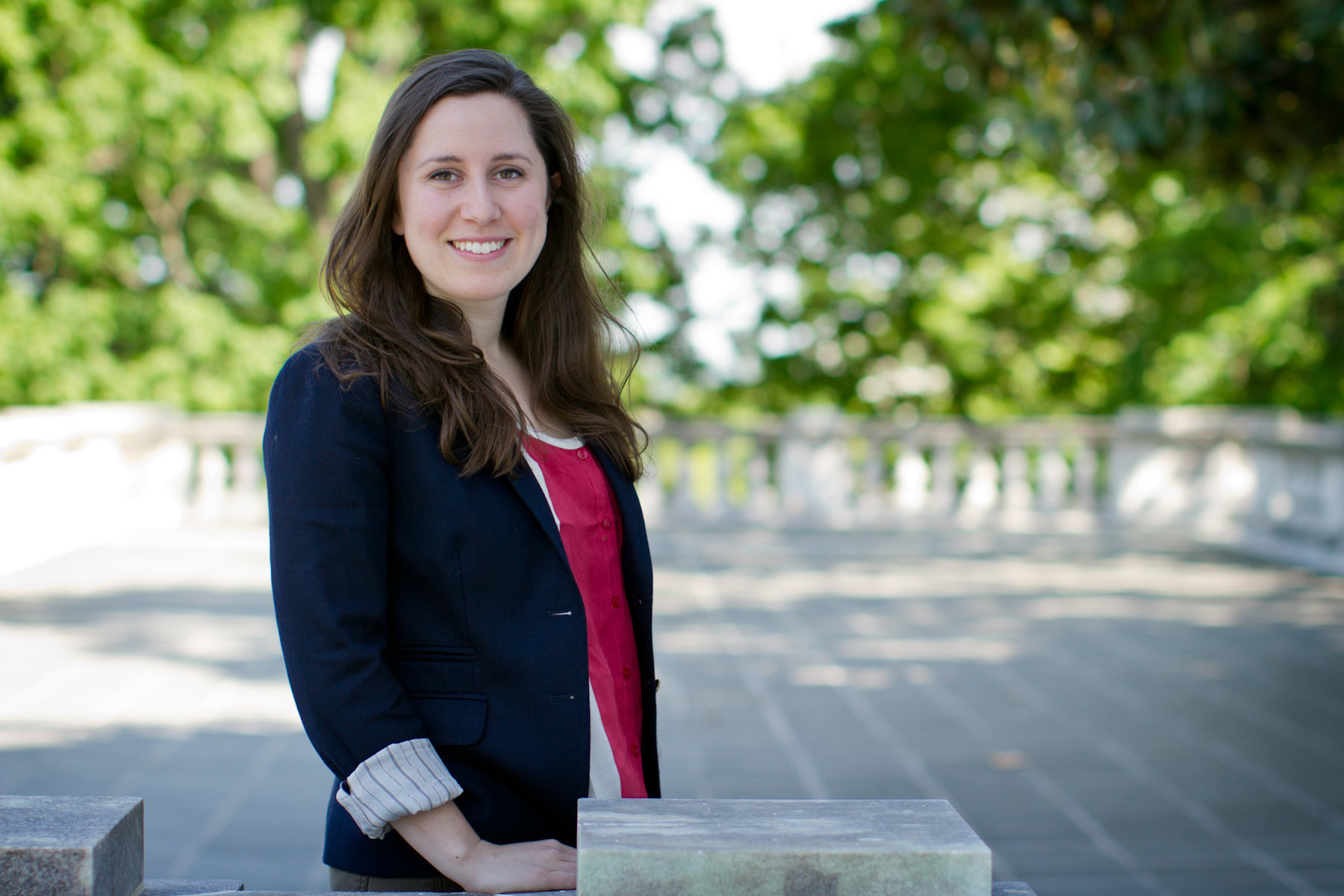May 10, 2012 — Soon-to-be University of Virginia graduate Kelsey Goodman exemplifies the idea of a global citizen, from her Cherokee-Jewish heritage to her work with Sudanese refugees not only in Charlottesville, but also while studying abroad in Cairo.
A double major in foreign affairs and Middle Eastern studies in the College of Arts & Sciences, she will continue her international work with the Peace Corps after she graduates May 20.
When Goodman studied at the American University in Cairo in spring 2010, the political revolution that eventually ousted Egyptian President Hosni Mubarak was still a year away. While there, she "made a lot of very dear friends who challenged me politically and intellectually" and weren't biased against her Jewish heritage, she said.
When the Egyptian people later took to the streets in protest, it became difficult to keep track of her friends. She turned to her Arabic professor, Mohammed Sawaie, who would watch Al Jazeera with her and discuss the political situation.
"I was so worried for the safety of my friends in Cairo, but also ecstatic and hopeful for what the future held for them," Goodman said. "When the Mubarak regime shut off the Internet and cellular communications in Cairo, and I could no longer communicate with my friends who were in Tahrir Square, I was pretty much tearing my hair out. Thank goodness, Professor Sawaie was always waiting with a fresh pot of tea for me, or else I don't know how I could have gotten through that time."
Sawaie said he enjoyed talking to Goodman about issues in Egypt and the Middle East. She was an excellent student of Middle Eastern studies and of Arabic, he said, although he joked that the Egyptian dialect of colloquial Arabic she learned was not so helpful academically.
Goodman also used her Arabic when teaching Sudanese refugees. In her first year, she joined Students Taking Action Now: Darfur, and found that most Sudanese refugees spoke Arabic. In Cairo, she taught English to primarily Sudanese refugees through another organization, Student Action for Refugees. When she returned to U.Va., she tutored through a program with the International Rescue Committee.
Goodman, who grew up in Madison, Ala., said her drive to help others came from recognizing she has grown up with privileges her ancestors did not have.
Her paternal Jewish great-grandparents were the children of refugees escaping persecution in Eastern Europe. Her maternal Cherokee ancestors walked the "Trail of Tears," the U.S. government's forced relocation of Native Americans from the Southeast to the West, which started in 1830.
"I can't change the experiences of oppression that my ancestors faced, but I can work to help those who are still deprived of basic human dignities today," Goodman said, adding that she identifies with both sides of her heritage. "This has been what has motivated me to work with refugee communities in the U.S. and abroad."
She credited her parents for instilling a strong sense of pride in her cultural background.
"There was a time when my sister and I, who are only 14 months apart, were learning Cherokee" – Tsalagi in its own language – "on Wednesday afternoons in the Indian education program at school, and then Hebrew on Sunday mornings at synagogue."
At U.Va., she joined the American Indian Student Union and served as vice president for the past two years. Although the group is small, it hosted the annual Virginia Indian Nations Summit on Higher Education in March, lobbied for a Native American studies minor and planned events for Native American Heritage Month in November.
"AISU was a supportive outlet for exploring what it meant for me to be Cherokee, and what it meant to possess a multicultural identity in contemporary America," she said.
Like many U.Va. students, Goodman said her "involvement in extracurricular activities has been a way to explore my own passions and interests outside the classroom and to find a way to apply academic knowledge to real-world situations." She also worked on the student weekly paper, the Declaration, serving as news editor in her fourth year.
Her experiences, at the University and abroad, have sharpened her focus and helped her connect her past and her future.
"When I came to U.Va, I knew I was interested in this vague concept of human rights, and I knew I wanted to do something with my life that would promote that vague concept," she said. "If it wasn't for my experience at U.Va., I would probably still be stuck in the abstract."
She doesn't know where the Peace Corps will send her, but after her two years of service, she hopes to attend graduate school and eventually work in U.S. foreign policy, she said.
"I am passionate about issues of forced migration and refugee resettlement, so I hope to work to with those issues in some capacity in the future," she said.
— by Anne Bromley
Media Contact
Article Information
May 10, 2012
/content/class-2012-kelsey-goodman-honors-multicultural-heritage-home-and-abroad

